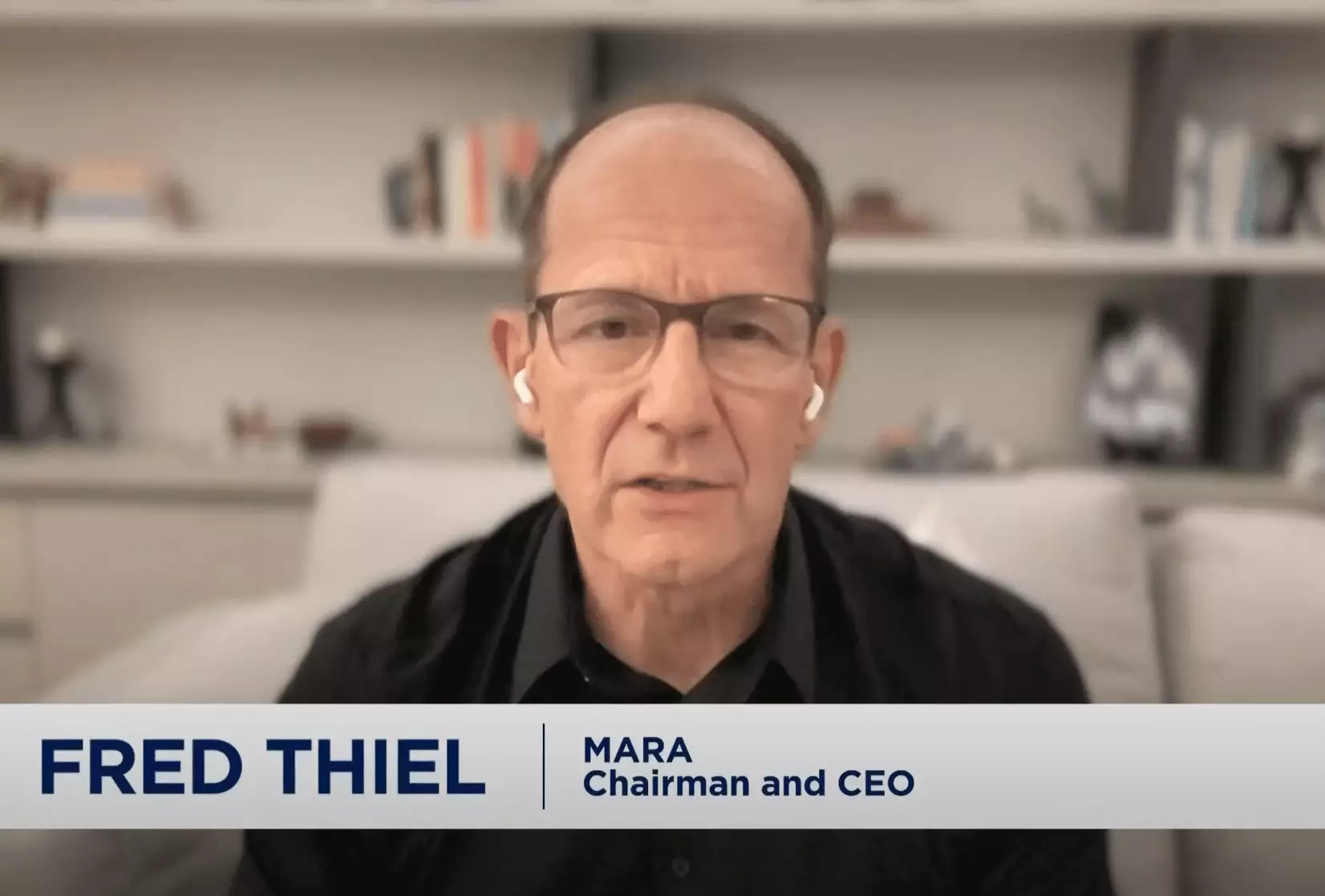In a recent discussion with CNBC, Fred Thiel, the CEO of Marathon Digital Holdings, expressed an optimistic view on the future of Bitcoin. Thiel highlighted the notable increase in institutional interest toward Bitcoin, which he attributes to changes in regulatory attitudes and the introduction of spot exchange-traded funds (ETFs). Unlike retail investors, institutional players are beginning to recognize Bitcoin not just as a speculative asset but as a fundamental component of their investment portfolios.
The CEO’s disregard for the effects of the recent Bitcoin halving on the coin’s price reflects a departure from conventional wisdom, suggesting that the traditional narratives surrounding halving events may need re-evaluation. Thiel argues that the introduction of ETFs has acted as a catalyst for institutional investment, potentially redefining the Bitcoin market landscape. Over recent months, we have witnessed a transformation where pension funds are not only showing interest but are actively purchasing Bitcoin-related equities, thereby signaling a shift towards mainstream acceptance.
The intersection of Bitcoin and politics also plays a critical role in shaping market dynamics, according to Thiel. Citing the potential re-election of Donald Trump, whose campaign includes a pro-Bitcoin agenda, he argues that a supportive regulatory environment may emerge. This speculation extends to the idea that a favorable political stance could catalyze investment in Bitcoin on a national scale, thereby compelling other countries to follow suit. If the U.S. government indeed places an emphasis on Bitcoin as a strategic reserve, it could ignite broader global adoption.
Thiel’s perspective challenges the status quo by proposing that political developments will not only benefit Bitcoin but could also reposition it as a critical asset class in global finance. This potential shift in regulatory sentiment highlights the dynamic interplay between policy and market performance, suggesting that external factors will increasingly influence Bitcoin’s trajectory in the coming years.
Despite ongoing challenges such as selling pressures from long-term Bitcoin holders taking profits, Thiel remains confident in the market’s resilience. He notes that every Bitcoin purchased is currently in profit, underscoring a strong base of support. This robust demand can absorb market fluctuations and selling pressure, which is a positive indication for investors contemplating their positions in Bitcoin.
Thiel believes that Bitcoin has largely shaken off its historical volatility, claiming that drastic price drawdowns may soon be a relic of the past. The influx of institutional capital could stabilize the market, given their capacity to absorb substantial amounts of Bitcoin without causing significant price disruptions. Observing trends in other major corporations, such as MicroStrategy, Thiel points to the potential for aggressive institutional buying of Bitcoin, which might solidify its price support.
Future Projections and Corporate Strategies
Marathon Digital stands as a pivotal player in this evolving landscape, differentiating itself through its substantial Bitcoin mining operation. Thiel noted the company’s recent financial maneuvers, which include raising $1 billion through a convertible note offering, a strategy aimed at accumulating more Bitcoin. Such moves parallel those of MicroStrategy, yet Marathon’s operational focus offers a unique angle that may attract investor confidence.
Cantor Fitzgerald’s revision of Marathon’s price target reflects this optimism, projecting growth potential in both the mining sector and Bitcoin investments. The competitive edge derived from being the largest publicly-traded Bitcoin mining entity contributes to the intrinsic value of Marathon’s stock, creating a synergy that could enhance future profitability for shareholders.
In summation, Fred Thiel’s insights reveal a significantly positive outlook for Bitcoin, bolstered by institutional investments and a favorable political climate. While the market may experience fluctuations, the overarching trend appears to favor upward movement, fueled by increasing demand and favorable conditions for investment.
As Bitcoin continues to attract institutional backing, coupled with positive regulatory sentiment, the prospect for Bitcoin as a sustainable asset class grows more tangible. Investors should watch for developments in regulatory policies and corporate strategies aiming to innovate within this space. The future of Bitcoin may well be defined by these interconnected trends, making it an exhilarating asset to follow for both new and seasoned investors alike.



















Leave a Reply